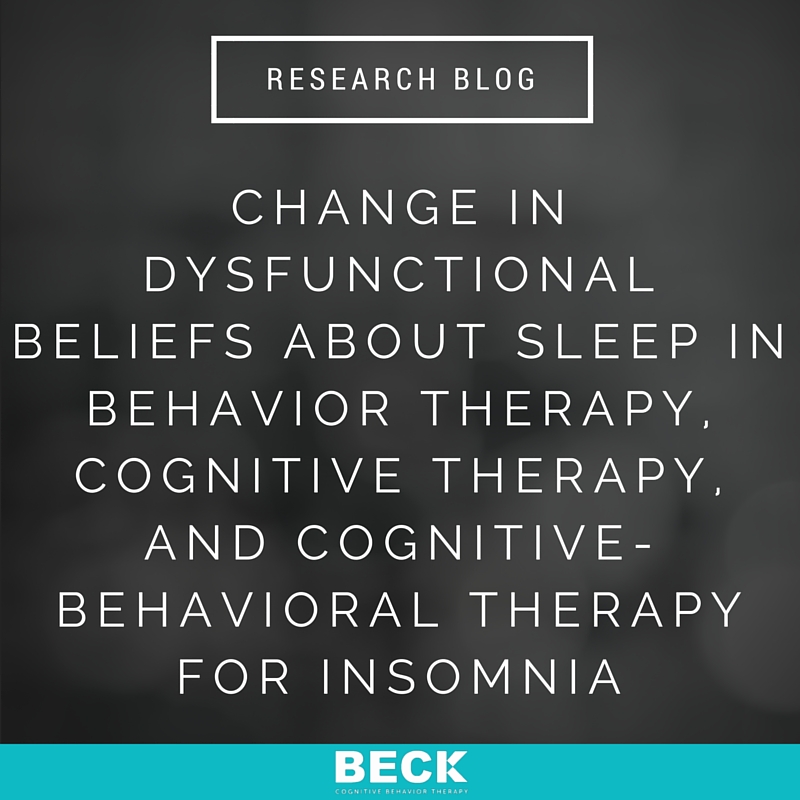Abstract

As part of a larger randomized controlled trial, 188 participants were randomized to behavior therapy (BT), cognitive therapy (CT), or cognitive-behavioral therapy (CBT) for insomnia. The aims of this study were threefold: (a) to determine whether change in dysfunctional beliefs about sleep was related to change in sleep, insomnia symptoms, and impairment following treatment; (b) to determine whether BT, CT, and CBT differ in their effects on dysfunctional beliefs; and (c) to determine whether the treatments differ in their effects on particular kinds of dysfunctional beliefs. Beliefs, sleep, insomnia symptoms, and sleep-related psychosocial impairment were assessed at pretreatment, posttreatment, and 6- and 12-month follow-up. Greater change in dysfunctional beliefs occurring over the course of BT, CT, or CBT was associated with greater improvement in insomnia symptoms and impairment at posttreatment and both follow-ups. All groups experienced a significant decrease in dysfunctional beliefs during treatment, which were sustained through 6- and 12-month follow-up. Compared with the BT group, a greater proportion of participants in the CT and/or CBT groups endorsed dysfunctional beliefs below a level considered clinically significant at posttreatment and 12-month follow-up. The results demonstrate the importance of targeting dysfunctional beliefs in insomnia treatment, suggest that beliefs may be significantly modified with BT alone, and indicate that cognitive interventions may be particularly powerful in enhancing belief change.
Eidelman P., Talbot, L., Ivers H., Belanger, L., Morin, C. M., & Harvery A. G. (January 2016) Change in Dysfunctional Beliefs About Sleep in Behavior Therapy, Cognitive Therapy, and Cognitive-Behavioral Therapy for Insomnia. Behavior Therapy, 47(1), 102-115.